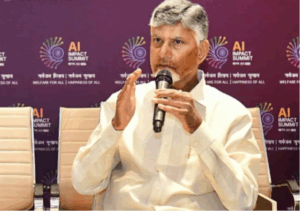
The Andhra Pradesh government on Monday unveiled its new industrial policy, envisaging a multi-faceted end-to-end business enablement centre that will offer 10 services to investors throughout the entire life cycle of the industry.
Launching the ‘Andhra Pradesh Industrial Development Policy 2020-23’, Industries Minister Mekapati Goutham Reddy said the state government decided to announce the policy for only three years instead of five years in view of the current COVID-19 pandemic.
“In these COVID times, we believe we can’t go for a prolonged policy. It has to be a very dynamic policy, not static. We decided to keep it for three years as a trial run because across the world the patterns of investment are changing. The way we are doing work is changing. We need to facilitate all these changes,” he said.
The Minister said the new policy would ensure hand-holding with the existing and new investors through the entire life cycle of the industry.
Services from multiple state agencies will be integrated under an end-to-end business enablement centre ‘YSR AP One’ to ensure that the investors are set on the path to success.
It will have 10 cells for hand-holding during the pre-establishment and set-up of the unit, efficient post set-up support, ensure backward and forward linkages and help in accessing markets and new technologies.
The entrepreneurship facilitation cell will maintain a repository of business models and plans and support for aspiring entrepreneurs in the state with knowledge support to start new ventures.
There will be a cell to undertake market research and develop sector-wise resource repositories. The marketing and branding cell will support businesses in marketing their products locally and globally.
The sales support cell will connect units in the state with potential buyers while the scheme support cell is aimed to support units in availing the benefits of central and state government schemes.
The MSME revitalisation cell will proactively assess Micro, Small and Medium Enterprises (MSMEs) and revive and reposition sick MSMEs. The business enablement cell will support businesses in getting all approvals and addressing all grievances.
The investor outreach cell will work with priority sectors and geography desks for investor outreach while the incentive management cell will assess unit performance, estimate incentives, and ensure timely disbursement of incentives.
The special category cell will handhold SC/ST/BC/minority entrepreneurs throughout the investor life cycle.
The policy offers incentives for women entrepreneurs from these communities, including reimbursement of 100 per cent stamp duty, 50 per cent rebate on land cost up to Rs 20 lakh, power reimbursement of Rs 1.25 per unit for 5 years, 35 per cent investment subsidy up to Rs 50 lakh for MSMEs, interest subsidy of 3 per cent for 5 years, reimbursement of 25 per cent land conversion charges up to Rs 10 lakh, 100 per cent SGST reimbursement for 5 years for MSMEs, 75 per cent for medium enterprises, and 50 per cent for large enterprises.
The policy also proposes 30 skill development centres and 2 skill development universities. It also provides for a digital platform that matches a company’s requirement with available skilled labour.
Under the ease of doing business, it promises a faster approval process, central helpline desk, district-level interventions by the Collector and improved access to credit through regular meetings with bankers.
The stated objectives of the policy include channelling the vast untapped industrial potential of the state, promoting a holistic and well-balanced regional growth, train and skill the workforce to attract global investments and ensure a fast turnaround time for grounding investment proposals.
The policy is aimed to create employment for the youth, match the national average in industrial Gross Value Added (GVA) per capita, plan balanced growth across regions and communities and achieve environmentally sustainable growth.
It is also designed to develop plug-and-play infrastructure facilities targeting MSME players at affordable rates, pre-cleared land parcels in industrial parks, development of clusters and mega industrial parks along with three major corridors.
Industrial zoning will be a key focus area to ensure planned industrial development. It will provide a risk-free investment-friendly environment for industries in the state.
A separate industrial zoning and safety policy is also under development.
Recent Random Post:
















